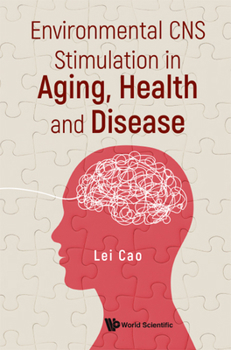Environmental CNS Stimulation in Aging, Health and Disease
Social and environmental factors have profound impacts on health and diseases across the lifespan. Each year, hundreds of millions of animals are used in biomedical research. Yet many experimental studies utilize animals housed in standard conditions conferring minimal physical, social, and mental stimulation. Lacking appreciation of macroenvironment impacts on physiology and disease risks of the laboratory animals may not only hinder the use of appropriate animal models for human diseases, but also question the validity of preclinical assessments of therapeutic agents.This book summarizes our work on environmental enrichment, a housing condition for laboratory animals, recapitulating an active lifestyle by providing a complex physical, social, and cognitive stimulations. Environmental enrichment exerts a wide range of benefits on energy balance, cancer, immunity, stress, behavior, and healthy aging. One underlying mechanism is the activation of a specific neuroendocrine brain-adipocyte axis with brain-derived neurotrophic factor as the key brain mediator. This book integrates recent discoveries regarding mechanisms, mediators, and biomarkers of environmental enrichment, and discusses its translational potential.By providing a timely review and discussion of murine models, this book should be of interest to basic, translational, and clinical researchers, as well as psychologists, nutrition scientists, and students that have interest in cancer, obesity, aging, and genetic disorders.
Format:Hardcover
Language:English
ISBN:9811250332
ISBN13:9789811250330
Release Date:April 2022
Publisher:World Scientific Publishing Company
Length:436 Pages
Weight:1.65 lbs.
Dimensions:0.9" x 6.0" x 9.0"
Customer Reviews
0 rating





